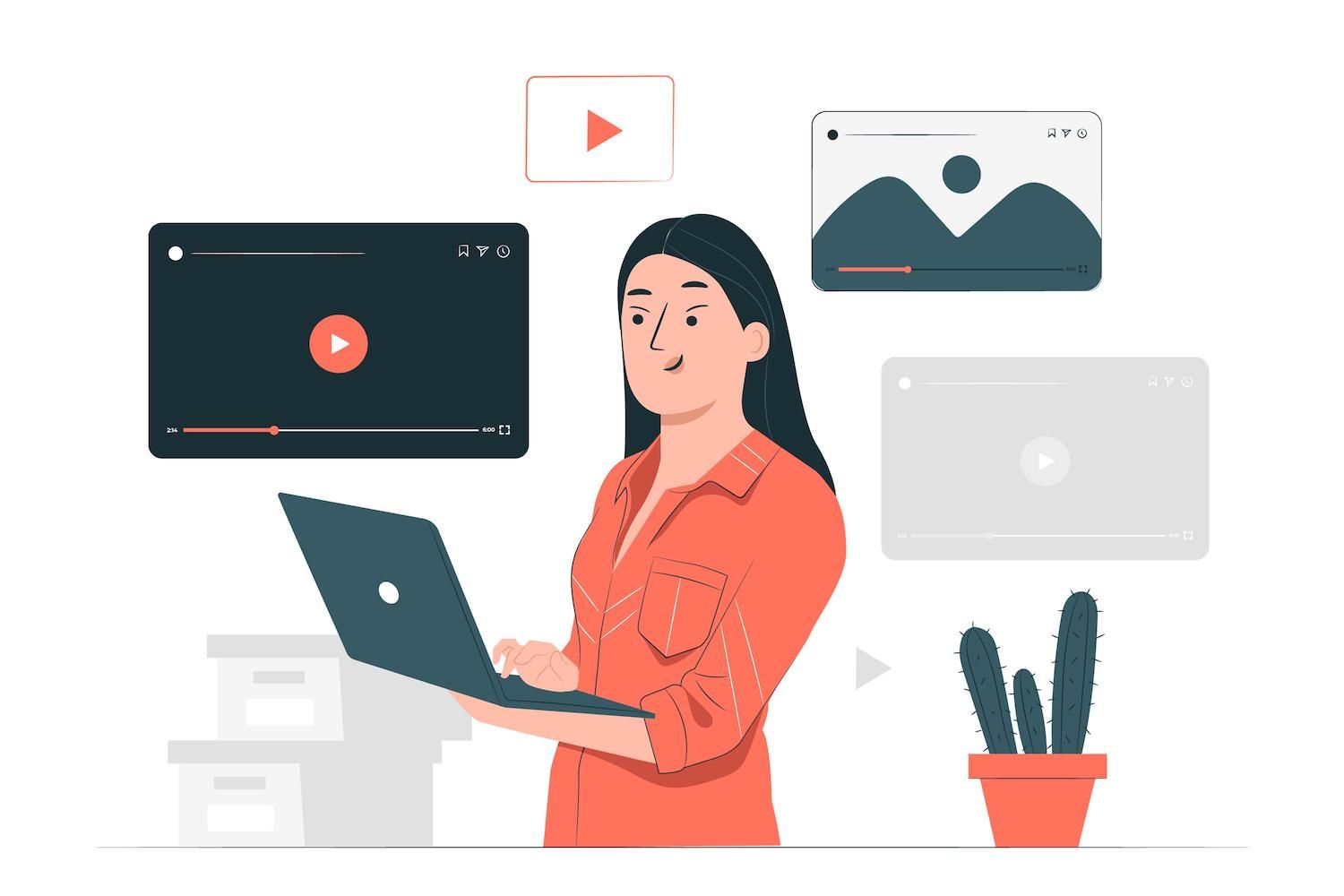Seven of the top lessons from Self-Made Summit
seven of the significant lessons learned from Self-Made Summit
What's the most effective way for you to begin to build an organization that is profitable? An array of business owners as well as hopeful entrepreneurs met online on June 16, 20th, 2020 for the Self-Made Summit to find out.
Our top experts from our lineup let us in their worlds by sharing the strategies for success as well as their most memorable moments. The following is a short review of the top tips for entrepreneurship that they learned from the first virtual summit.
1. Take note of your emotions, especially when facing rejection
Rejection hurts. Being underestimated hurts. When you're at your lowest moment, trust your inner voice and be sure to believe that voice. Jamie Kern Lima spent a decade creating IT Cosmetics from the ground to the top. At the beginning her company only managed to get through about three orders each day. Requests to QVC, Sephora, and other stores were being rejected each time. Each time, Jamie wondered if she'd remain in business.
"Every when I was told "no," I conducted an inner assessment," she said. Jamie could sit at a distance and observe, and her intuition would tell her "You're meant to be on this specific path."
In an unforgettable moment when chatting with a private equity investor Her inner voice was heard loud and clear. Investor made the choice not to invest following an extensive due diligence procedure. The decision was not in connection with figures or data. His reasoning was, as per her memories: "I'm just not sure women will buy makeup from someone that looks identical to you and who matches your physique and weight."
In shock, Jamie maintained her calm and believed in what intuition was telling her. She was absolutely certain that she was on the right track. "I believed it and knew that it was the truth," she said.
Then she was able to prove him wrong by selling IT Cosmetics to L'Oreal for $1.2 billion. If she had made a bet in her company and it was the best company's investment to date.

2. Let your "why" guide your decisions
If you're struggling with an important choice, think about why you started your business even to begin with. The decision you make must be consistent with the purpose and objectives of your company regardless of how much advice the experts give. This is exactly the principle Jamie discovered when she landed her first QVC commercial and hired experts who specialize in selling television.
From Day 1, her mission was to make sure that women felt gorgeous, regardless of their age , or issues with their skin. The idea was not to be in competition with other beauty brands by using Photoshopped ads that set unattainable standards. According to her advisers, they believed that the best method to be successful was to adhere to the same model. Young models with flawless skin.
Jamie contemplated for weeks before the live show she had to choose between taking advice from experts and following her instincts as well as doing something entirely distinct. She was not able to go with her intuition. When she refocused on her goals as well as the people she wished to aid and understood exactly the task she needed to accomplish.
When Jamie was first introduced to the world with her QVC appearance, the merchandise was available for sale in 10 minutes. In the time since, Jamie has personally appeared in more than 1,000 live TV shows on QVC.
3. Spend your money on things that matter the most
In the beginning of your firm, each dollar is vital. Do not drain your bank account through expenses such as costly photography sessions, extravagant car rentals, or first class flights if you're unable to afford the costs. In the age of social media and frenetic culture, many entrepreneurs get caught up in creating facades online. It's just the ego is, as per Jamie.
Spend your funds on the most crucial aspects of your business, and you should be very disciplined about the expenditure so as not to compromise the quality of your products or your operations. At the beginning of IT Cosmetics, Jamie would frequently travel to present companies. She recalls searching online for flights that were cheap and cheap rental cars. She also recalls sharing hotel rooms at Motel 6.
"It's the little things which make it possible to turn cash flow positive" Jamie said. "Nobody is talking about it. They're not exactly appealing. However, they're vital."
4. "Just on time" learning outdoes "just in the event" Learning
Entrepreneurs are naturally curious who love to learn. The problem is you are stuck in a rut, believing that you aren't able to start your own business so it is as long as you've already done one more thing (e.g. attending a course, or buying software, go to an event, or study the contents of a book.). A common practice is to gain new knowledge to be prepared to use them later on.
A constant desire to know additional information, even if properly-intentioned, can lead to confusion and overwhelm, as per Mel Abraham, the founder of Thoughtpreneur Academy and Business Breakthrough Academy.
"We are all consumers of all this media, but we don't ever become creators of the direction of our lives." Mel said.
He urges everyone to shift their mindset to learning instead of "just in case" learning towards "just at the right time" learning. Focus on what you need for you to get most impact as quickly as possible. "What do you require today? Study the subject. Go do it," he said.
Do you not know the areas that should be given priority to your business online?
Here's the "bare bones" that Mel has identified:
- A traffic source
- it's a matter of working out a solution
- a means of converting potential customers into clients (e.g. the webinar online)
- An opportunity to showcase your service or product

5. Keep your eyes on the path
With the constant bombardment of ads and information online, entrepreneurs can easily get caught up. Perhaps you're keeping track of your competition and looking to imitate them. Perhaps you're always trying out novel business models, fresh deals, or even tech instruments. Be aware that any distractions you make can harm the business you run.
Jamie regularly said to that her IT Cosmetics team, "Our biggest threat isn't the competition. It's if we ever get lost in the competition and lose the secret formula."
Tyler McCall, an Instagram business advisor who has been focusing in building his membership business despite all the hype about premium items. One of the biggest myths among online businesses is that you can't reach $1 million in revenue by selling an expensive product.
Tyler did not care about that, and instead focused in establishing his Membership Following To Fan Society, priced at 75 dollars per month. So far, the business has brought in more than $1.5 million in only two years.
"You cannot be successful and make your own path when you're considering the path which others have chosen," he said.
In a report on Oprah's huge success in the world of daytime television, Tyler pointed out that Oprah was not a watcher of her competitors like Phil Donahue Maury Povich or Ricki Lake. In contrast to other television shows that focused on trashy television, Oprah stayed with the "live your life to the fullest" notion and remains among the top-rated daytime talk programs throughout American TV history. Oprah often said: Oprah previously stated in the past, "You can only run the race that you decide to participate in."
6. Amplify what makes you different
Keep in mind that they are searching for an individual who resembles yourself, as well as has particular experiences. Based the work of Danielle Leslie, creator of Culture Add Labs and creator of Course from Scratch "What distinguishes the you from others is the thing that makes you unique."
Danielle has the ability to expand her business from a mere the level of $10 million within less than 4 years. She's a big proponent of differentiating yourself in the market by telling your story, as well as the elements that make you distinct.
"Your benefits from your cultural background as well as all your challenges you've faced in your journey, you should talk about it all of them: the challenges as well as downsides, positives, and every aspect. We're interested in hearing everything," Danielle said. Because no one else can tell the same story as you and no one else is able to give exactly what you have to say. As a result, your product will not be something you can sell as a commodity.
7. Unblock yourself by keeping your eyes on your client.
Business owners who design their own marketing material for example, sales page templates, they often find themselves pondering how to close the sales. Brittany Darrington, business strategist, and co-founder of the Corporate Misfit Club, broke down an easy strategy to being free of the shackles:
- Reconsider your position take your breath deeply, close your eyes and consider "Who do I serve? What conversation would we have similar to if we had coffee with each other?"
- Imagine your ideal customer speaking about her issues.
- You should think about what you would tell this person before you begin to formulate your argument from there.
The author also suggests tackling your sales page piece by piece instead of one big undertaking. Each piece is an element of your website: the headline, your video and pain points, along with solutions, social proof and so on.
Are you unsure of how to transform your expertise or interest into a sought-after training course?
Download our exclusive report "10 unique online courses that are that are in high demand today"
Download the PDF
Join our email list
Receive the most recent posts directly to your email inbox. Your email address Subscribe
Enter an email address with a valid validity
Oops! It was a mistake sending the email, please try again.
Article was first seen on here
